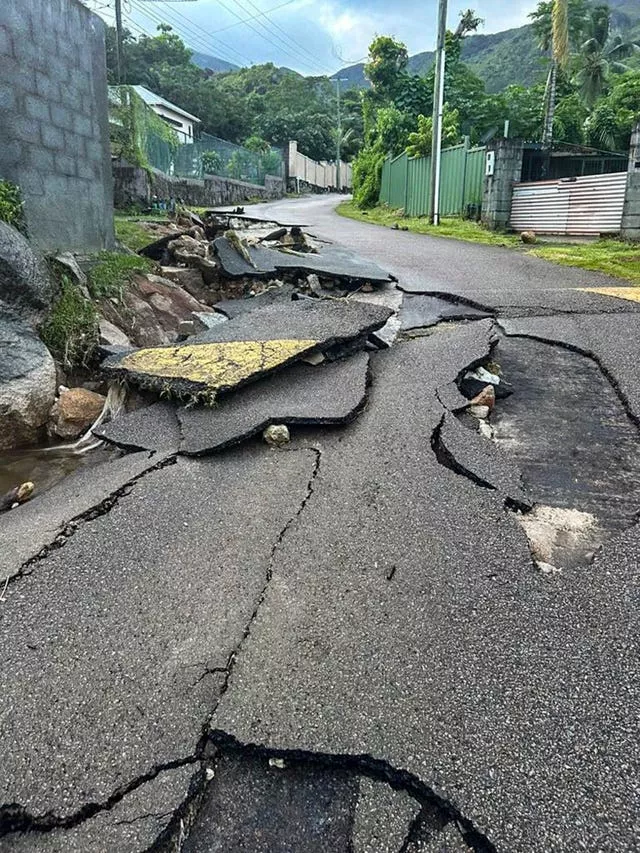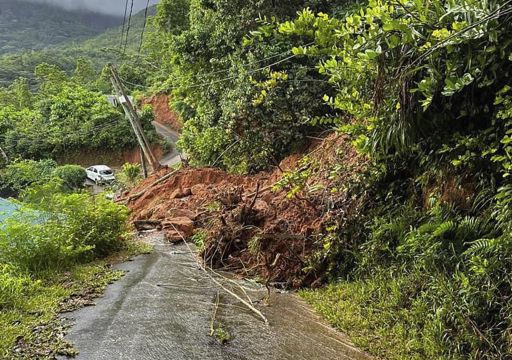The Indian Ocean island nation of Seychelles has declared a state of emergency after flooding killed three people and scores of others were injured in a huge blast at an explosives depot near the capital.
The explosion caused mostly minor injuries to 178 people, the health ministry said.
It took place around 2am on Thursday and came after hours of heavy rain and flooding, mostly in the north of the main island of Mahe, though authorities did not link the blast to the weather.
Waters from the rains flooded houses, washed away parts of roads and caused landslides in some areas.

Two people died after becoming trapped in their home, authorities said.
The explosion took place in the industrial area of Providence, around seven kilometres (4.3 miles) southeast of the capital of Victoria, the country’s president said.
The blast destroyed buildings, flattened trees and left a large crater.
National TV showed people at hospitals and clinics bloodied with injuries after the blast. No deaths were reported from the explosion.
President Wavel Ramkalawan cited both the flooding and the explosion when announcing the state of emergency.
His statement ordered schools to close and people to stay at home in the nation of just over 100,000 people to give emergency services and other essential workers the space to do their jobs.
The blast caused “massive damage” and the floods caused “major destruction,” the president’s statement said.

The health ministry said the people injured in the blast at Providence had gone to medical centres for treatment.
A policeman was being treated in an intensive care unit, the Seychelles national news agency reported.
“The damages are huge and many families have moved out of their homes for security reasons,” Mr Ramkalawan said.
He said he was shocked to see the aftermath of the explosion in Providence and surrounding areas.
“It was as if we went through a war,” he said.
He said four containers of explosives caused the blast and an investigation would be held into whether the construction company that was housing the explosives had taken proper precautions with their storage.
“At the moment we don’t really know what happened,” said government minister Jean-Francois Ferrari, who visited the blast site. “There was this huge explosion in the commercial zone.”
“The explosion was so, so big, so loud,” he said. “We have not recorded any deaths as a result of this explosion. All in all, it’s a disaster, but everything is under control.”

Authorities said the international airport and ferry services between islands were still operating to allow people to travel if they had to during the state of emergency.
Seychelles is an archipelago off the east coast of Africa and a major tourist destination.
It is the continent’s smallest country by area and population, with the most populous island of Mahe only about 26 kilometres (16 miles) long and 17 kilometres (10 miles) wide.
Much of the East African region has been hit by heavy rainfall and deadly flooding recently.
Hundreds have died across the region and millions have been displaced since the rains began in late October.
Ethiopia, Kenya, Somalia and South Sudan have all experienced raging floods that have been made worse by the El Niño weather phenomenon. More than 130 people have died in Ethiopia, Kenya and Somalia.
An international team of scientists says the catastrophic rains in East Africa have also been exacerbated by human-caused climate change, which made them more intense.







